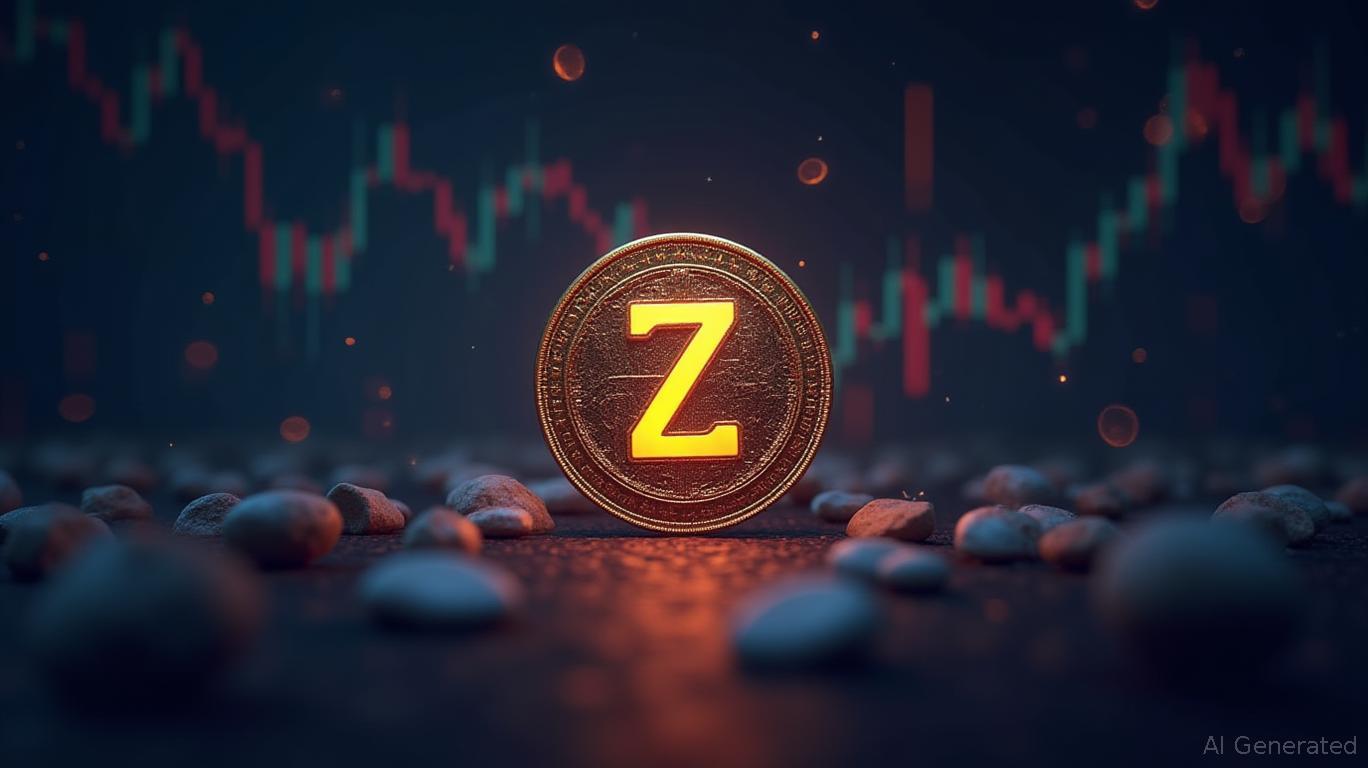Staking-Enabled Solana ETFs Close to Approval as Regulators Indicate Institutional Crypto Transition
- U.S. SEC nears approval of first Solana (SOL)-backed ETFs after major firms submitted staking-enabled S-1 filings, signaling institutional confidence in the blockchain. - Staking provisions allow funds to generate yield by participating in Solana’s proof-of-stake consensus, boosting net asset value and differentiating from traditional crypto funds. - Global demand surges with $60M inflows to European Solana ETPs and $250M AUM for U.S. staking ETFs, while regulatory efficiency and standardized frameworks

The U.S. Securities and Exchange Commission (SEC) is expected to soon authorize the first
Staking, a central feature in these proposals, reflects broader regulatory changes. In September, the SEC simplified the approval process for Ethereum-related products, removing redundant steps and allowing for more uniform listings. This move could accelerate the approval of Solana ETFs, eliminating the need for individual reviews. Bloomberg’s James Seyffart pointed out that the simultaneous amendments from all major issuers suggest coordinated regulatory action. Through staking, funds can engage in Solana’s proof-of-stake system, earning rewards that add to fund income and benefit shareholders.
Interest in Solana-based investment products is rising globally, further supporting the momentum behind these filings. Bitwise’s Solana staking ETP in Europe saw $60 million in inflows over just five trading days, while the U.S.-listed REX-Osprey Solana Staking ETF attracted $10.6 million in net inflows and exceeded $250 million in assets under management (AUM) within two months. REX-Osprey also transitioned its fund to a regulated investment company, removing federal and state taxes at the fund level and enhancing tax efficiency. Grayscale’s multi-asset CoinDesk Crypto 5 ETF, which features Solana and
The regulatory landscape for crypto ETFs has changed quickly, with the SEC’s recent approval of Grayscale’s Ethereum products marking a move toward more standardized processes. This shift, along with the addition of staking in Solana ETF filings, could pave the way for other proof-of-stake digital assets. Markus Thielen from 10x Research noted that
With 16 Solana ETF proposals among 96 pending crypto ETF applications, Solana is poised to take a leading role in the last quarter of 2025. Competition is heating up as firms compete for early investments, with staking becoming a crucial distinguishing feature. Grayscale’s move into diversified crypto funds and REX-Osprey’s tax-optimized approach highlight ongoing innovation in the sector. Should these ETFs receive approval by mid-October, they could help bridge the gap between traditional finance and Solana’s blockchain, boosting institutional involvement and market liquidity.
Disclaimer: The content of this article solely reflects the author's opinion and does not represent the platform in any capacity. This article is not intended to serve as a reference for making investment decisions.
You may also like
Bitcoin’s recent decline indicates a reset period, with Swissblock highlighting the potential for a 20-30% upward surge
- Swissblock identifies Bitcoin's late-September 2025 dip as a "reset phase" precursor to 20-30% rallies, citing historical 2023-2024 patterns. - On-chain metrics show low volatility and bullish sentiment despite $110,000 support break, with institutional buying seen as key recovery driver. - Critical support levels at $110,000-$100,000 act as near-term catalysts, with stable derivatives markets reinforcing market resilience against systemic risks.

Circle’s Refund Protocol Strikes a Balance Between Blockchain Finality and Institutional Adaptability
- Circle launches Refund Protocol on Arc blockchain to resolve stablecoin disputes via escrow and arbitration for institutional users. - Collaboration with Fireblocks enables secure institutional adoption through custody integration and cross-border treasury solutions. - Protocol balances blockchain finality with traditional finance safeguards, addressing fraud risks while maintaining transaction efficiency. - Aligns with U.S. regulatory trends, positioning USDC as a compliant tool for institutional market

Will Ozak AI’s $OZ Token Hit the $1.00 Mark as Predicted?
- Ozak AI’s $OZ token presale has raised $3.41M, selling 918M tokens at $0.012, with a planned $0.014 price increase in Phase 6. - Investors must use Ethereum-compatible wallets, account for gas fees, and avoid phishing risks via official channels only. - Strategic partnerships with Pyth Network and Sinthive enhance AI-driven DeFi tools, aiming to boost predictive analytics and cross-chain connectivity. - Tokens are locked until TGE, with a $1.00 price target, though risks persist due to no KYC requirement

Regulatory transparency encourages institutions to diversify their altcoin holdings
- SEC approves Hashdex ETF to include XRP, SOL, XLM, diversifying institutional altcoin exposure with 6.9% XRP allocation. - XLM faces short-term volatility near $0.340 support but shows bullish momentum with long-to-short ratio at 1.0. - AVAX gains 42% on institutional partnerships while VET's $0.025 consolidation hints at potential $0.068-$0.12 breakout. - SEC's 75-day ETF approval process accelerates market diversification, with over 100 crypto ETFs projected in 2025.
